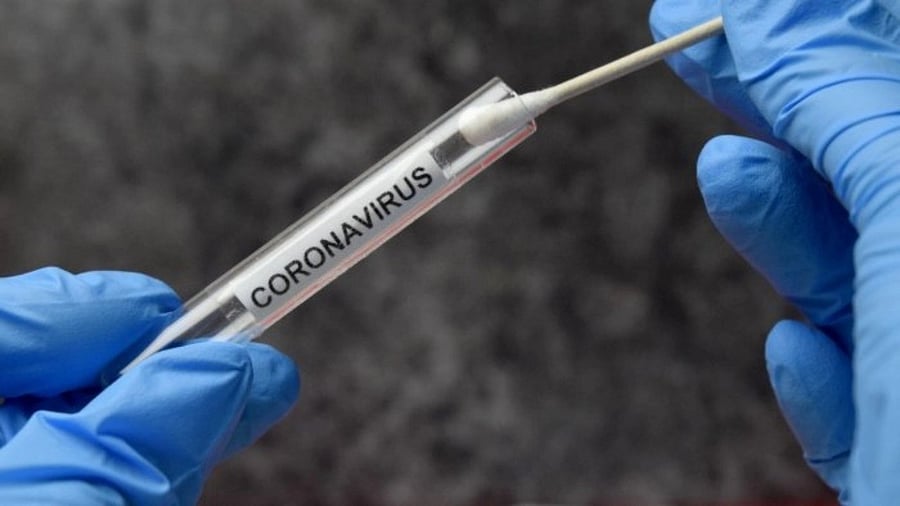
Representative image showing a Covid-19 sample.
Credit: iStock Photo
Bengaluru: An AIIMS, Delhi, associate professor has said increased risk of bone density loss and osteoporosis are among the lesser-known long-term effects of covid-19 infection.
Professor Rupesh K Srivastava shared the information during a presentation at the 51st IMMUNOCON 2024, a four-day annual conference of the Indian Immunology Society held at the JN Tata Auditorium, IISc, on Thursday.
His talk focused on "immunoporosis", a term describing the role of the immune system in the onset and progression of osteoporosis, a disease marked by the loss of bone density and strength.
As part of his ongoing research into the link between SARS-CoV-2 infection and osteoporosis, Srivastava highlighted that the virus impairs the adaptive immune response, causing tissue damage and negatively impacting bone health.
He pointed out that while Covid-19's impact on the respiratory system has been widely studied, its effects on bone health have received less attention.
"Viral, bacterial, and fungal diseases can lead to bone loss, and we are also investigating the role of gut microbiota in bone health. Studies have shown that nearly 50% of people who suffered from Covid-19 exhibit a heightened risk of severe osteoporosis and bone loss,” he explained.
The conference featured researchers from across the country who presented posters and delivered sessions on a variety of topics, including immunology, immunomodulation, B cell responses, clinical immunology, host responses to infections, T cell biology, tumour immunology, and viral infections.
Other notable talks covered next-generation solutions for snakebites, immune correlates of tuberculosis, vaccines for leprosy and tuberculosis, and the mechanisms of cell death.
Several companies specialising in cell biology, immunology, microbiology, and biochemistry also showcased their latest innovations at the event.